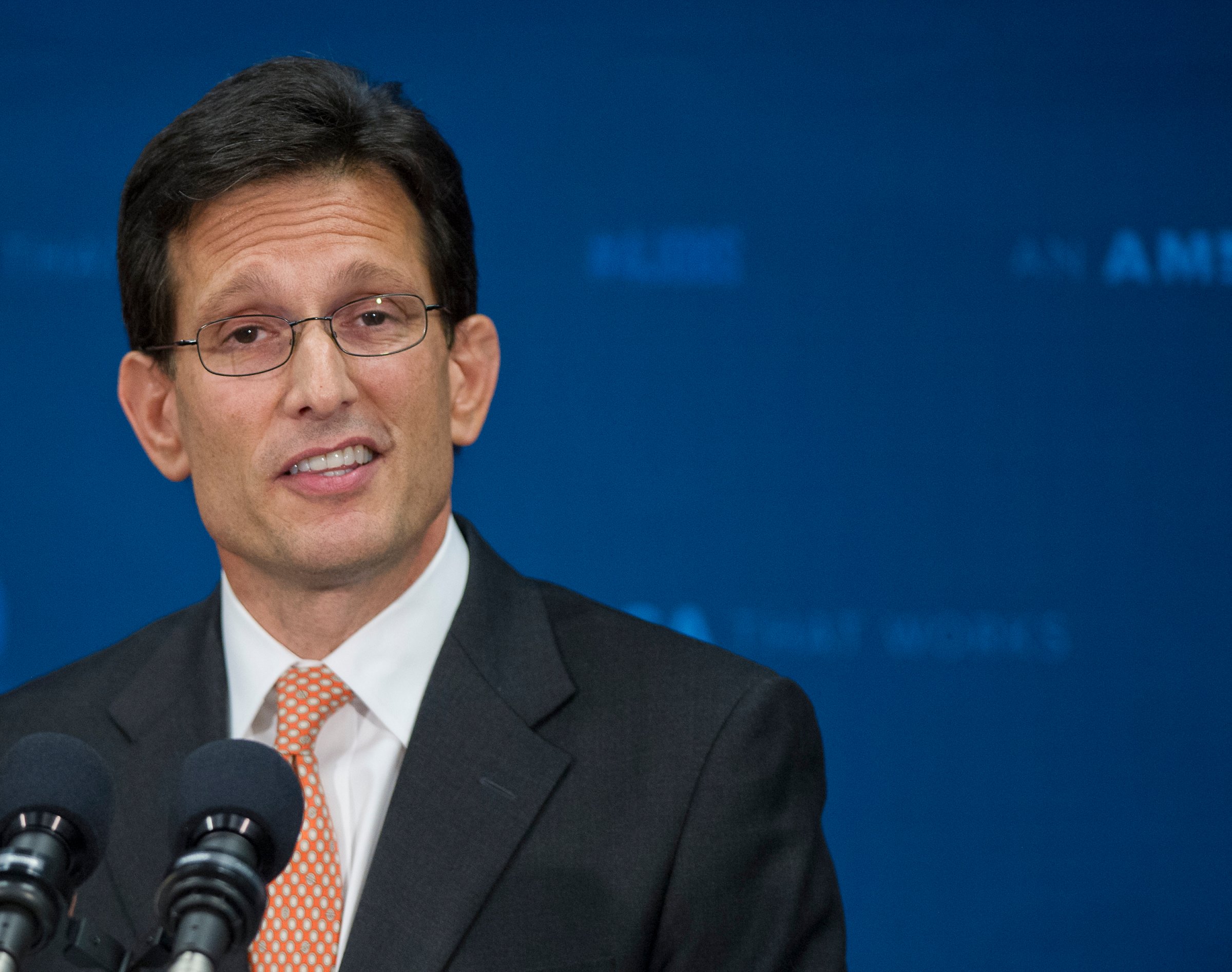
Majority Leader Eric Cantor’s sudden fall from power could end in the clutches of the private sector. But one possibility, K Street, does not seem to entice Cantor.
“I don’t think that I want to be a lobbyist,” said Cantor Sunday on ABC’s This Week. “But I do want to play a role in in the public debate.”
So where else would he go?
Chris Jones, a managing partner of CapitalWorks who was called “K Street’s talent scout” in a profile from The Hill, believes that Cantor will move to New York and take a “prominent role” at one of the major banks.
“I don’t think he’ll be a standard lobbyist at a law firm,” says Jones. “I think he’ll go big … I think he’s a major power player.”
A move to banking or financial services would continue Cantor’s close ties to those industries: Cantor’s top three campaign contributors over the past year were investment firms Blackstone Group, Scoggin Capital Management and Goldman Sachs, according to the Center for Responsive Politics.
But if Cantor does decide to play a role in the public arena, he could easily serve as a conduit between big money and top Republicans in the campaign finance netherworld that he managed so well as a politician.”I believe he will start or expand a political operation similar to the American Action Network or Crossroads [GPS],” says a longtime Cantor ally, who spoke on the condition of anonymity. “He will be a sought-after advisor for presidential campaigns. He will serve on corporate boards and possibly have a senior advisor role in a company.”
Of course, Cantor could still push through the well-worn revolving door by joining a business community that would welcome him with open arms. Cantor’s support for limited government and skill set would guide an easy transition to K Street.
“Increasingly the House Republican caucus has been viewed as a little bit unwieldy and hard to work with,” says Jones. “[Cantor] understands all the elements, all the factions, the whims of politics. And he’s able to interpret, analyze [and] read the tea leaves.”
Becoming a lobbyist would also significantly increase Cantor’s current salary of $193,400 a year.
“I think that the bidding probably starts at $1 million,” says Ivan Adler, an executive recruiter for the McCormick Group. “I think he would be a magnet for business at any law firm. He would be a tremendous advocate for the interests of anybody that wanted to sign up with him. I think he’s got a really bright future.”
Cantor’s senior staff has already reached out to explore his lobbying options, according to one recruiter. The source estimated that he could make anywhere from half a million to four million dollars a year, depending if he engaged in advocacy for a non-profit or for a business association. The top officers at some financial lobbies, including the Managed Funds Association and the Institute of International Finance, earned compensation packages between $2.2 million and $3.9 million, according to a recent study conducted by National Journal.
“I’ve been very gratified by the number of people that have reached out to me already,” said Cantor on Sunday.
More Must-Reads from TIME
- Cybersecurity Experts Are Sounding the Alarm on DOGE
- Meet the 2025 Women of the Year
- The Harsh Truth About Disability Inclusion
- Why Do More Young Adults Have Cancer?
- Colman Domingo Leads With Radical Love
- How to Get Better at Doing Things Alone
- Michelle Zauner Stares Down the Darkness
Contact us at letters@time.com